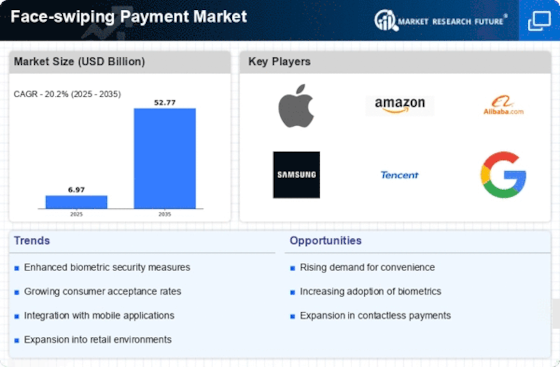Market Trends
Key Emerging Trends in the Face-swiping Payment Market
For one thing, competition has surged within financial technology’s pioneering sector which is the face swiping payment market, with companies scrambling for higher market stakes. In this fast-changing environment, successful players have put in place efficient market positioning measures to become industry leaders in emerging markets. An example of this is employing cutting-edge facial recognition technology.
Market share within the Face Swiping Payment is determined by strategic partnerships and collaborations. Companies form alliances with major financiers and technologists to integrate their face recognition payment systems with present banking infrastructure as well as some mobile applications.
The success of user adoption is central to any business operating in the Face Swiping Payment market hence customer-centricity remains paramount. Providers concentrate on developing intuitive interfaces, frictionless onboarding processes, and security or privacy of user data being a topmost priority. User experience counts a lot and those who perform better gain a competitive advantage here.
Meanwhile, pricing strategies are heavily involved in defining how much market share should be taken up by different players within the Face Swiping Payment sector. The key objective behind using flexible and clear pricing models is to cater to varying demands from businesses as well as individual clients. Some providers may offer subscription plans while others would rather go for transaction based rates instead.
To make e-branding efforts effective and to teach people the gains of swiping faces to pay, it is important to make use of good marketing and communication strategies. Providers invests in targeted marketing campaigns that emphasize on how convenient, safe and innovative their systems are. Educating consumers and businesses about the benefits of face recognition for payments is vital for adoption.
To maintain long-term success in the market for Face Swiping Payments, firms need to be flexible with changing industry trends as well as regulatory changes. In order not to be caught unawares by consumer behavior change, technological advancement or compliance requirements, providers must always be alert. Regular system updates that can meet emerging challenges and keep pace with evolving industry standards will ensure its relevance in the long term.


















Leave a Comment